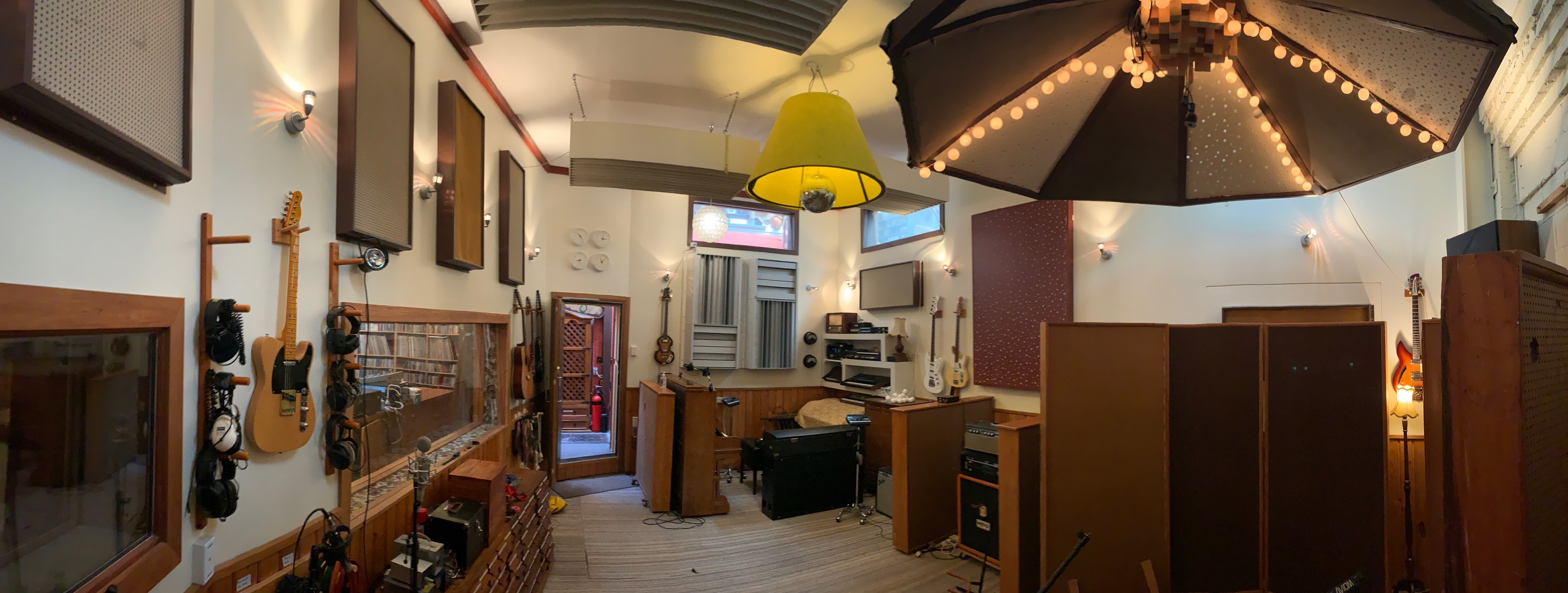Lynx Studio Technologies N 32HDX
31st Aug 2022
The Surgery Recording Studio uses Lynx Studio Technologies N 32HDX - the converter you've been listening to, but never knew.
It wouldn't take long for any conversation about music production in NZ to mention Lee Prebble and his incredible recording studio, The Surgery. With over 20 years of producing music, countless Tui's for Engineer of the Year, a discography with numerous number 1 hits, and multiple successful albums, Lee certainly knows his way around a studio. Lee has also been a long time supporter of STL Pro Audio. He uses a Lauten Audio Atlantis microphone, and in 2020 he installed a Lynx Studio Technologies N 32HDX as The Surgery's primary conversion.
Owner of STL Pro Audio and friend Troy Kelly (TK) sat down with Lee for a chat about his success and how things have been going after a number of top 10 NZ albums using the Lynx N.

TK: Thanks for taking the time to answer some questions Lee I know you’re super busy and in huge demand at The Surgery, and for good reason. I saw on social media that 6 of the top 10 NZ Albums in one week went through The Surgery. That has to be a record of some kind, so congratulations! Do you intend to get any rest?
Lee: Ha ha, thanks very much. Yeah that was pretty special. LAB sure helped to get that number up there, taking 4 out of the 6 albums. To be honest though, I keep pretty regular hours. I've done my time of crazy long days and have worked out that once you go past 8 hours you start being less productive, ears start to get tired and often I'd end up re-doing things I'd done the previous day cos they weren't up to scratch. I also have 3 kids and realised that in order to stay motivated and inspired, you have to get inspiration from outside the non parallel walls of a studio. I figure I balance music for a living so in order to do that well, I need to be able to balance my life well too.
TK: Seriously though, that is a fantastic achievement. You’ve also had incredible success working with bands on multiple albums, LAB x 5 albums, The Black Seeds x 6 albums, Trinity Roots x 3 albums, Phoenix Foundation x 6 albums, so engineering aside that must mean you form incredible relationships with the bands. If you had to give one piece of advice to a young engineer on forming long term relationships with bands what would it be?
Lee: I think being relaxed and not too intense really helps. I make sure I listen a lot, and I don't just mean to the music, but to the people making the music. Sometimes people suggest ideas that I think, "oh that's not gonna work", but I always try to see ideas through and more often than not I'm proved wrong and it turns out to be great. But not always ha ha. But yeah, I guess it comes down to respect. It's not my music, I'm trying to help the musicians make the best out of their music. As long as they're happy, I'm happy.
TK: Sonically your work is loved for its analog, vintage and authentic tones, which is very hard to do in a digital world. What's the one piece of the chain that helps you get there the most? A mic, a preamp or a compressor? I know it's not the latest plugin on sale!
Lee: Mmm, hard to put it down to 1 piece of gear. I find it's combinations of gear that I get excited by. So matching the right mic for the instrument, i.e if its a hard, brash sound, I might use a soft ribbon, or if it's a mellow dull sound I'll try a bright condenser. And then the same goes with the preamp, matching the tone of the pre with what the source is and the mic I've chosen. I also consider how much colour I want to add to the sound. Sometimes a particular mic provides enough colour so I'll go with a clean preamp and compressor, like some of the Buzz Audio gear. I try to avoid too much valve, i.e if I'm using a valve mic I'll often avoid a valve preamp as well. But in saying that, there's no hard and fast rules. That's what I love about this game, you never know everything and you're always learning new things. Or sometimes just remembering things you used to know : )
TK: Which brings me to my main topic in 2020 you upgraded The Surgery’s primary converters to the Lynx Studio Technologies (n) 32 HDX. What were you using before hand and how have you found it affects your workflow?
Lee: Before the Lynx I had an Apogee Rosetta and 2 x AVID 192 interfaces. Plus I was monitoring through the Crane Song Avocet which has digital inputs. I'd had the Apogee since 2005 where I had it paired with a Digidesign 001. I always thought it sounded great, (which it did when I got it especially compared to the 001), but before I installed the Lynx I did some comparisons and listening and realised I liked the 192's a bit better! Bit late to work that out. While the 192s and Apogee worked well, I'd often lose 1 interface if I changed sample rates, so I'd have to restart the computer a few times to get them all locked up again. So while it worked pretty well it was a bit glitchy.
When I got the Lynx, I basically plugged it in and it just worked. All 32 I/O. No glitches, no dropouts. It was very, very straightforward to integrate into my system. I then did some listening tests using some mix sessions that I'd run stems out through the console, so I was able to directly compare the sound of the converters (in a very non scientific way). The Lynx was waaaaaay better. More open top end, tighter bottom end, more focused mids. All those clichés you read about but they were actually true! (Although there was 1 song that I liked the sound of the old converters on. It was a sludgy, bluesy tune and the Lynx cleaned it up just a touch. But I think if I'd started the mix from scratch with the Lynx I'd have kept it in that same zone : ) It's also amazing that I went from 5 rack spaces of converters to a single rack space with only 1 cable going to the computer!
TK: So given that you had 2 years using the Lynx Studio Technologies N 32HDX what's your overall feeling?
Lee: I reckon the thing I want most out of converters is to not have to think about them. I don't want to have to adjust parameters, lose inputs, or most importantly, think about how the sound. Since I installed the Lynx I honestly haven't thought about it since. Which is the greatest compliment.
Lynx make a diverse range of options to fit in the N, from Thunderbolt, Dante & USB with options in 8, 16, 24 & 32 i/o. There is an option for every studio. Please email us if you have questions or want to discuss your studio upgrade today.
Find Lynx Products here: https://www.stlproaudio.co.nz/lynx-studio-technologies/
Visit The Surgery Recording Studio here: http://surgerystudios.co.nz/

